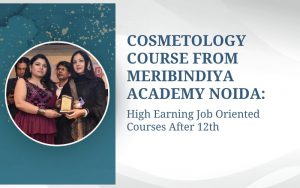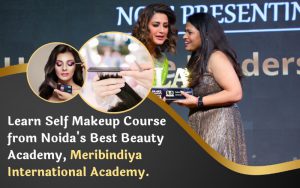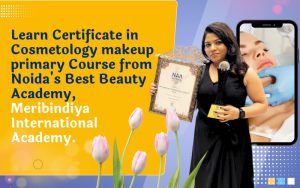A career in skincare is an exciting journey that offers the opportunity to help others achieve healthy, radiant skin. Whether you dream of becoming a licensed aesthetician, skincare therapist, or even a dermatologist, the first step is understanding the qualifications required to pursue a skin course. In this comprehensive guide, we will delve into the diverse qualifications needed to kickstart your career in the dynamic world of skincare.
Benefits of Hair Extension Courses
The Foundation: Diploma or Equivalent
The journey to becoming a skincare professional begins with a solid educational foundation. Most skin courses require a diploma or its equivalent as a basic qualification. This ensures that individuals entering the field have a fundamental understanding of core subjects such as biology and chemistry, which are crucial in comprehending the science behind skincare.
Having a strong foundation in these subjects lays the groundwork for grasping the intricacies of skincare on a cellular level. This knowledge becomes invaluable as skincare professionals assess the unique needs of their clients and recommend appropriate treatments and products.
Formal Education: Esthetics or Cosmetology Programs
Once the high school hurdle is cleared, aspiring skincare enthusiasts typically enroll in formal education programs. Two primary paths emerge at this stage: esthetics and cosmetology programs. Esthetics programs are more focused on skincare treatments, while cosmetology programs cover a broader spectrum, including hair and nails.
Esthetics Programs:
Esthetics programs dive deep into skincare techniques, anatomy, and physiology. These programs, often offered by specialized beauty schools, community colleges, or vocational schools, equip students with the knowledge and hands-on experience needed for a career in skincare with these skin care courses. Core subjects include facial treatments, body treatments, makeup application, and even spa management.
Working in Corporate Wellness: Promoting Health in the Workplace
Esthetics programs go beyond theoretical knowledge, providing students with practical experience through hands-on training. This hands-on approach is crucial for developing the skills needed to perform various skincare procedures with precision and confidence. From learning the art of facial massages to mastering the application of chemical peels, students in esthetics programs gain a comprehensive understanding of skincare practices.
Cosmetology Programs:
Cosmetology programs offer a broader curriculum, covering not only skincare but also hair and nails. Individuals interested in a well-rounded beauty education might opt for cosmetology programs. In cosmetology programs, students receive a diverse education that encompasses skincare, haircare, and nail care. This multifaceted approach enables graduates to offer a wide range of beauty services, making them versatile professionals in the beauty industry. However, those solely interested in skincare may find a dedicated aesthetics program more aligned with their career goals.
Licensing: The Gateway to Professional Practice
Once you’ve successfully completed your chosen educational program, the next crucial step is obtaining a state license. Licensing requirements vary by state but typically include passing written and practical exams. These exams assess your understanding of skincare concepts, safety protocols, and your ability to perform essential skincare procedures.
Earning a license after skin care classes is a significant milestone in a skincare professional’s journey. It not only validates your educational achievements but also demonstrates your commitment to meeting the industry’s standards of competence and safety. Licensed skincare professionals are authorized to practice legally, offering their services to clients within the framework of state regulations.
Understanding the Hair Extension Market
It’s important to note that some states may have reciprocity agreements, allowing licensed skincare professionals from one state to practice in another without undergoing additional exams. Researching your specific state’s licensing requirements is essential to ensuring a smooth transition into professional practice.
Continuing Education: Staying Current in a Dynamic Field
The skincare industry is ever-evolving, with new technologies and treatments emerging regularly. To stay competitive and offer the best services to clients, skincare professionals often engage in continuing education. This may involve attending workshops, seminars, or pursuing advanced certifications in specialized areas like chemical peels, microdermabrasion, or laser treatments.
Continuing education is not just a requirement for license renewal in many states; it is a proactive approach to staying abreast of industry advancements. Skincare professionals who invest time and effort in ongoing education with skin specialist courses position themselves as experts in the field, capable of delivering cutting-edge treatments and skincare solutions.
As technology continues to shape the skincare landscape, professionals must adapt and learn to incorporate innovative tools and techniques into their practice. Continuing education provides the platform for skincare enthusiasts to explore new trends, refine their skills, and offer clients the latest and most effective skincare solutions.
Specialized Certifications: Elevating Your Expertise
While a basic esthetics or cosmetology license allows you to practice skincare, obtaining specialized certifications can set you apart in the competitive beauty industry. Depending on your interests and career goals, you might pursue certifications in areas such as:
· Advanced Skincare Techniques: Certifications in advanced techniques like microneedling, dermaplaning, and lymphatic drainage can enhance your service offerings.
· Product Lines: Becoming certified in specific skincare product lines can open doors to working with luxury or medical-grade products.
· Medical Esthetics: For those interested in the intersection of skincare and medicine, certifications in medical esthetics may be pursued, allowing professionals to work in medical spas or alongside dermatologists.
Becoming a Consultant Dietitian: Advising Individuals and Organizations
Specialized certifications offer a deeper dive into specific aspects of skincare, allowing professionals to carve out niches within the industry. Whether you aspire to specialize in anti-aging treatments or focus on skincare for specific skin conditions, certifications with skin care training courses provide the knowledge and credibility to excel in these areas.
Bachelor’s Degree and Beyond: Exploring Advanced Education
While a high school diploma and esthetics or cosmetology license form the foundation of a skincare career, some individuals may choose to pursue advanced education. A bachelor’s degree in fields like dermatology, nursing, or health sciences can lead to more specialized roles, such as medical esthetician, skincare consultant, or even dermatologist.
Advanced education with skin certificate course opens doors to research, teaching, and leadership roles within the skincare industry. Individuals with a passion for advancing the field may contribute to scientific research, develop skincare products, or educate the next generation of skincare professionals. However, it’s essential to weigh the time and financial commitment against the specific career path you envision.
Wrapping Up
Embarking on a career in skincare is a rewarding journey that requires dedication, education, and a commitment to continuous learning. From a high school diploma to specialized certifications and even advanced degrees, the skincare industry offers a diverse range of educational paths to suit various interests and career goals.
As you navigate this exciting field, remember that passion, dedication, and a commitment to ongoing learning are the keys to a successful and fulfilling skincare career. Whether you choose the esthetics or cosmetology path, obtain specialized certifications, or pursue advanced degrees, each step contributes to your growth as a skincare professional.
In a world where healthy, radiant skin is highly valued, your role as a skincare expert is crucial. Stay curious, stay informed with expert courses from MeriBindiya International Academy, and embrace the ever-evolving nature of the skincare industry as you embark on this fulfilling and dynamic career path.
MERIBINDIYA INTERNATIONAL ACADEMY































